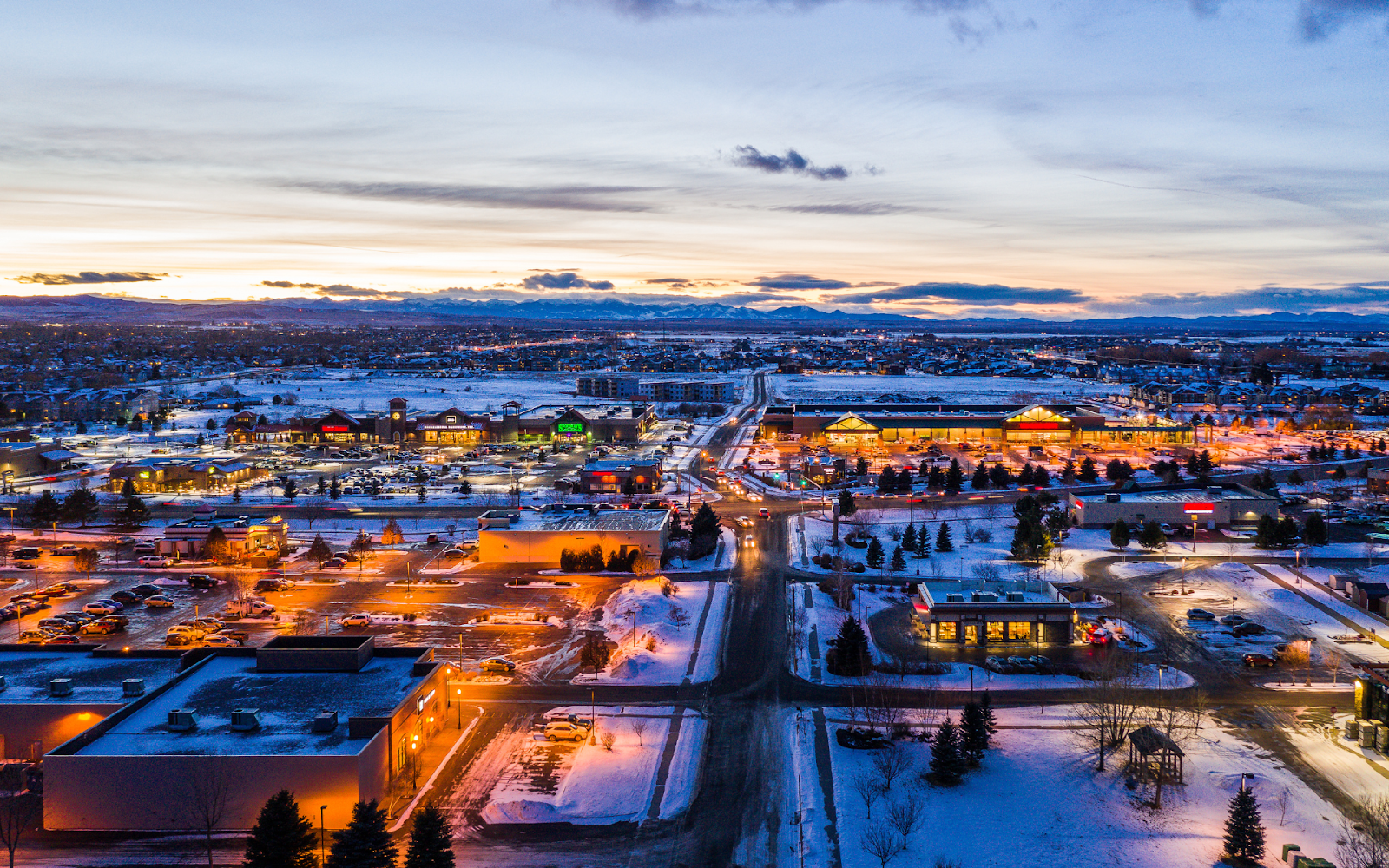
Key Takeaways:
- Legal Age and Limits: In Montana, adults 21 and older can legally possess up to 1 ounce of hemp for recreational use, with stricter limits for public consumption and cultivation.
- Impact of Federal Law: Federal regulations classify THC as a Schedule I substance, creating complications for banking, business operations, and enforcement on federal properties within Montana.
- Future Legislative Changes: Public opinion and economic benefits from the cannabis industry may lead to further liberalization of THC laws in Montana, affecting possession, use, and business regulations.
At Soul, we are committed to legal compliance and consumer education in Montana, just as we are across the nation. We ensure that our products meet and exceed Montana's legal standards to provide safe, high-quality, and effective wellness products. Our strict testing and authoritative stance guarantee that our customers can legally and responsibly enjoy the maximum benefits of our products.
This article aims to examine THC legislation in Montana thoroughly. We will look into the differences between medical and recreational use, the current laws governing THC, the penalties for possession, and how federal laws impact state regulations. Additionally, we will explore legal alternatives to THC and the future outlook on THC legislation in Montana.
Understanding The Difference Between Medical And Recreational Use
In Montana, compliance with state laws varies depending on whether THC use is for medical or recreational purposes. Medical cannabis was legalized in 2004 through Initiative 148, which allowed patients with severe medical conditions to legally use hemp prescribed by a licensed physician. The primary objective of this initiative was to assist patients suffering from chronic pain, severe nausea, seizures, and other ailments approved by the Montana Department of Public Health and Human Services. Patients must have a medical hemp card and comply with specific possession limits, which differ from those set for recreational users.
Recreational cannabis was legalized much later, following the approval of Initiative 190 in November 2020. This law permits adults aged 21 and over to purchase and consume cannabis for recreational purposes. Unlike medical users, recreational consumers do not need a medical card, but they must purchase cannabis from licensed dispensaries and are bound by possession limits and public consumption laws.
Current Laws Governing THC In Montana
Legal Purchase Age
In Montana, anyone who wants to purchase recreational THC products must be at least 21 years old, which is the same minimum age for purchasing alcohol. This rule is in place to reduce the risk of young people accessing and using these products, which can lead to developmental problems and increased dependency risks. To ensure compliance with this regulation, stores are required to verify the customer's age with valid identification.
Possession Limits
For recreational use, individuals are allowed to possess up to 1 ounce of hemp or 8 grams of hemp concentrate. This limit is established to prevent stockpiling and potential illegal distribution. Medical cannabis patients, however, are allowed to possess a greater amount, usually enough for a 30-day supply as prescribed by a healthcare provider, to ensure they have adequate access to their medicine.
Consumption Areas
THC is strictly to be consumed in private settings to avoid impacting others in public spaces and to maintain public decorum. According to Montana law, using cannabis in public spaces such as streets, parks, and businesses is strictly prohibited and can lead to fines and potential criminal charges. This rule also applies to rented properties, where landlords may impose additional restrictions.
Home Cultivation
In Montana, adults are allowed to personally grow up to four mature cannabis plants and four seedlings at home. However, these plants should not be visible from any public area without the aid of binoculars, aircraft, or other optical devices. This ensures privacy and minimizes the risk of theft. Cultivation areas must also be secure to prevent minors and unauthorized persons from accessing them.
Driving While Intoxicated
Montana has strict laws against driving under the influence of THC, as it recognizes the risks associated with impaired driving. Like alcohol, THC can reduce reaction times and affect decision-making on the road.
Licensing For Dispensaries
Dispensaries operating in Montana are mandated to adhere to strict licensing requirements. These requirements include the implementation of robust security measures, conducting product testing, and ensuring accurate consumer labeling. These measures help to ensure that all products sold meet health standards and are safe for consumption. Additionally, compliance checks are regularly carried out to prevent unregulated sales and guarantee that dispensaries operate within the legal framework.
Penalties For THC Possession In Montana
Exceeding Possession Limits
Being found with amounts exceeding the 1-ounce limit for recreational users or 8 grams of concentrates can lead to misdemeanor charges. The initial fines may be up to $500, with potential jail time especially if the excess is significant. The severity of penalties often reflects the amount over the legal limit and the individual’s prior legal history, aiming to penalize and deter large-scale illegal possession.
Public Consumption
THC consumption in public places is strictly prohibited and violators are fined between $100 and $500. This penalty is meant to maintain public decorum and prevent exposure to cannabis in community spaces like parks, streets, and schools. Repeat offenders may face escalated consequences, including higher fines and mandatory community service.
Illegal Cultivation
Home cultivation exceeding four mature plants and four seedlings is illegal and subject to legal action. For small-scale violations, penalties might include fines and the confiscation of all illegal plants. However, significant or commercial-scale violations are treated as felonies with potential for heavy fines and imprisonment.
Driving Under The Influence
Montana imposes severe penalties for driving under the influence of THC. Penalties include fines up to $1,000, suspension of driving privileges, mandatory participation in DUI education programs, and possible incarceration.
Possession Without Proof Of Age Or Medical Authorization
Anyone found in possession of THC without appropriate identification or a medical hemp card faces fines and legal scrutiny. This measure is in place to ensure that cannabis access is limited to legally eligible individuals and to prevent underage use of THC products.
Impact Of Federal Laws On Montana's THC Regulations
Federal Vs. State Jurisdiction
Despite being legalized in Montana, THC remains classified as a Schedule I drug under federal law due to its perceived lack of medical use and high potential for abuse. This classification causes significant legal discrepancies, especially on federal properties within Montana, such as national parks, where federal law enforcement maintains authority. Individuals caught with THC on these properties can face federal prosecution, highlighting the importance of understanding jurisdictional boundaries.
Banking And Business Operations
The clash between state legalization and federal prohibition significantly impacts the financial operations of THC businesses. Because cannabis is illegal federally, many banks refuse to provide services to these businesses to avoid legal consequences. This situation compels THC businesses to operate predominantly in cash, increasing risks related to security, taxation, and financial transparency.
Law Enforcement Cooperation
The dual legality status complicates collaboration between Montana's state law enforcement and federal agencies. While state police enforce Montana’s laws that permit THC use, federal agencies may still pursue charges against individuals under federal law.
Research And Development
Federal restrictions also severely limit research into cannabis and its derivatives. Researchers seeking to explore THC’s potential medical benefits are often hindered by stringent federal regulations that restrict cannabis handling and use in scientific studies.
Interstate Commerce
The federal ban on transporting cannabis across state lines limits THC businesses and consumers in Montana to intrastate commerce. Such restrictions prevent the growth of businesses into regional or national markets and restrict consumers' access to diverse products available in other states, stifling economic opportunities and consumer choice.
Legal Alternatives To THC In Montana
CBD Products
Cannabidiol (CBD) is a popular non-psychoactive compound derived from the cannabis plant. Unlike THC, CBD is non-psychoactive and is often used for its potential health benefits. In Montana, CBD products derived from hemp (containing less than 0.3% THC) are legally available and can be purchased in various forms such as oils, creams, and edibles.
Kratom
Although not a cannabis product, kratom is another legal alternative that some people in Montana use for pain management and mood enhancement. Kratom comes from the leaves of a tropical tree native to Southeast Asia and can be found in powder, capsule, and extract forms. However, users should be aware of the legal status of kratom as it can vary widely from one place to another and may also carry potential health risks.
Holistic And Herbal Supplements
A range of herbal supplements are available for those seeking similar benefits to THC. These include supplements like kava, valerian root, and chamomile, which are used for relaxation and sleep aid.
Delta-8 THC
Delta-8 THC is a minor cannabinoid that occurs naturally in cannabis. It is similar to Delta-9 THC, but it is less potent and has slightly different effects. While Delta-8 THC is a legal gray area in many states, it is currently legal in Montana and provides an alternative for those seeking some psychoactive effects with reduced potency.
Future Outlook On THC Legislation In Montana
The future of THC legislation in Montana will likely be influenced by several factors, including public opinion, economic impacts, and legal developments. Here's an in-depth look at potential changes and trends:
- Public Opinion Trends: In recent years, public opinion has shifted towards more favorable views on cannabis legalization, both medically and recreationally. This trend suggests that further liberalization of THC laws could be on the horizon in Montana, potentially leading to expanded legal uses and reduced restrictions.
- Economic Benefits: The legalization of THC has already brought significant economic benefits to Montana, including job creation in the cannabis industry and increased tax revenues. These positive economic impacts may encourage state legislators to further expand the industry, possibly by increasing the limits on possession and cultivation or by easing regulations for cannabis businesses.
- Legal Developments: As more states legalize cannabis for medical and recreational use, Montana may face pressure to adapt its laws to stay competitive and address federal legal changes. This could lead to reevaluating current regulations, particularly those involving interstate commerce and banking restrictions, which are significantly impacted by federal law.
- Health and Safety Research: Advances in research on the effects of THC and cannabis might also shape future legislation. More comprehensive data on health impacts and safety could lead to more informed policies that balance public health with legal access to cannabis.
- Potential Federal Decriminalization: There is an ongoing discussion at the federal level about decriminalizing cannabis. Federal decriminalization would alleviate many of the current conflicts between state and federal regulations and could usher in a new era of integrated cannabis policy across the United States.
Final Thoughts
Under Montana state law, individuals have legal access to both medical and recreational THC, but they must be aware of the limitations and responsibilities that come with these frameworks. Public consumption, driving under the influence, and exceeding possession limits are all actions that carry significant legal risks.
Moreover, the legislation surrounding THC in Montana may continue to change due to factors such as shifting public opinion, economic advantages related to the cannabis industry, and potential changes in federal policy. Residents should stay informed and participate in ongoing discussions about cannabis laws to ensure that their interests and concerns are represented in legislative processes.
For now, it is important for individuals who are interested in using cannabis to comply with existing regulations, understand the difference between federal and state law, and be aware of legal alternatives to THC. Montanans interested in using THC should also keep an eye on potential changes in the law and monitor legal developments to make responsible and safe decisions when it comes to cannabis use.
Read also:
Frequently Asked Questions About THC Legality In Montana
Is THC legal in Montana for non-residents?
Yes, THC is legal for non-residents in Montana, but they must comply with the same laws as residents, including the age requirement of 21 and over and possession limits.
Are there employment protections for medical hemp users in Montana?
Montana law does not provide explicit employment protections for medical hemp users, which means employers can enforce drug-free workplace policies and terminate employment for hemp use.
How much hemp can you buy at one time in Montana?
Adults 21 and over can purchase up to 1 ounce of hemp or its equivalent in other forms (like edibles or concentrates) per transaction at licensed dispensaries.
Can landlords prohibit hemp use on their properties in Montana?
Yes, landlords in Montana can prohibit the use of hemp on their properties through lease agreements, especially smoking, as it pertains to maintaining a smoke-free environment.
Is it legal to transport hemp across state lines from Montana?
No, it is illegal under federal law to transport hemp across state lines, even if traveling between states where hemp is legal.
What are the regulations for hemp advertising in Montana?
Montana imposes strict regulations on hemp advertising, including restrictions on targeting minors, promoting overconsumption, and making health-related claims that are not substantiated.
Do you need a medical card to purchase THC in Montana?
No, adults over the age of 21 do not need a medical card to purchase recreational hemp. However, a medical card is necessary for purchasing medical hemp, which may allow access to higher limits and tax exemptions.
How are hemp taxes used in Montana?
Hemp taxes in Montana are used to fund a variety of state programs, including substance abuse treatment programs, veterans' services, conservation efforts, and general state budget needs.
Sources:
- Hansen, C., Alas, H., & Davis Jr., E. (2021, June 30). Where Is hemp Legal? A Guide to Hemp Legalization. US News & World Report. https://www.usnews.com/news/best-states/articles/where-is-hemp-legal-a-guide-to-Hemp-legalization
- Jones, C. R., & Sejati, Y. A. (2021). Marijuana Taxes: Federal and State Tax Updates. JOURNAL OF STATE TAXATION.
- National Academies of Sciences, Engineering, and Medicine. (2017). Cannabis: Prevalence of Use, Regulation, and Current Policy Landscape. In The Health Effects of Cannabis and Cannabinoids: The Current State of Evidence and Recommendations for Research. National Academies Press (US).
- Dorbian, I. (n.d.). Despite Some Stumbles, Total Sales In U.S. Cannabis Market Could Soar To $50.7 Billion By 2028, Says Top Researcher. Forbes. Retrieved October 18, 2023, from https://www.forbes.com/sites/irisdorbian/2023/02/15/despite-some-stumbles-total-sales-in-us-cannabis-market-could-soar-to-507-billion-by-2028-says-top-researcher/?sh=1f90e293164d






